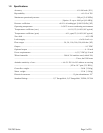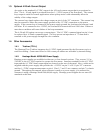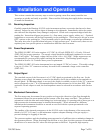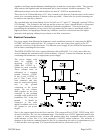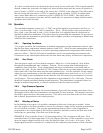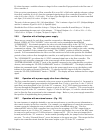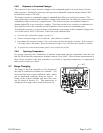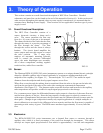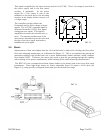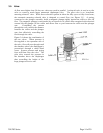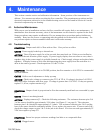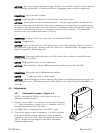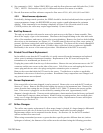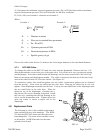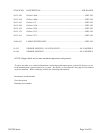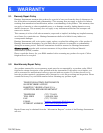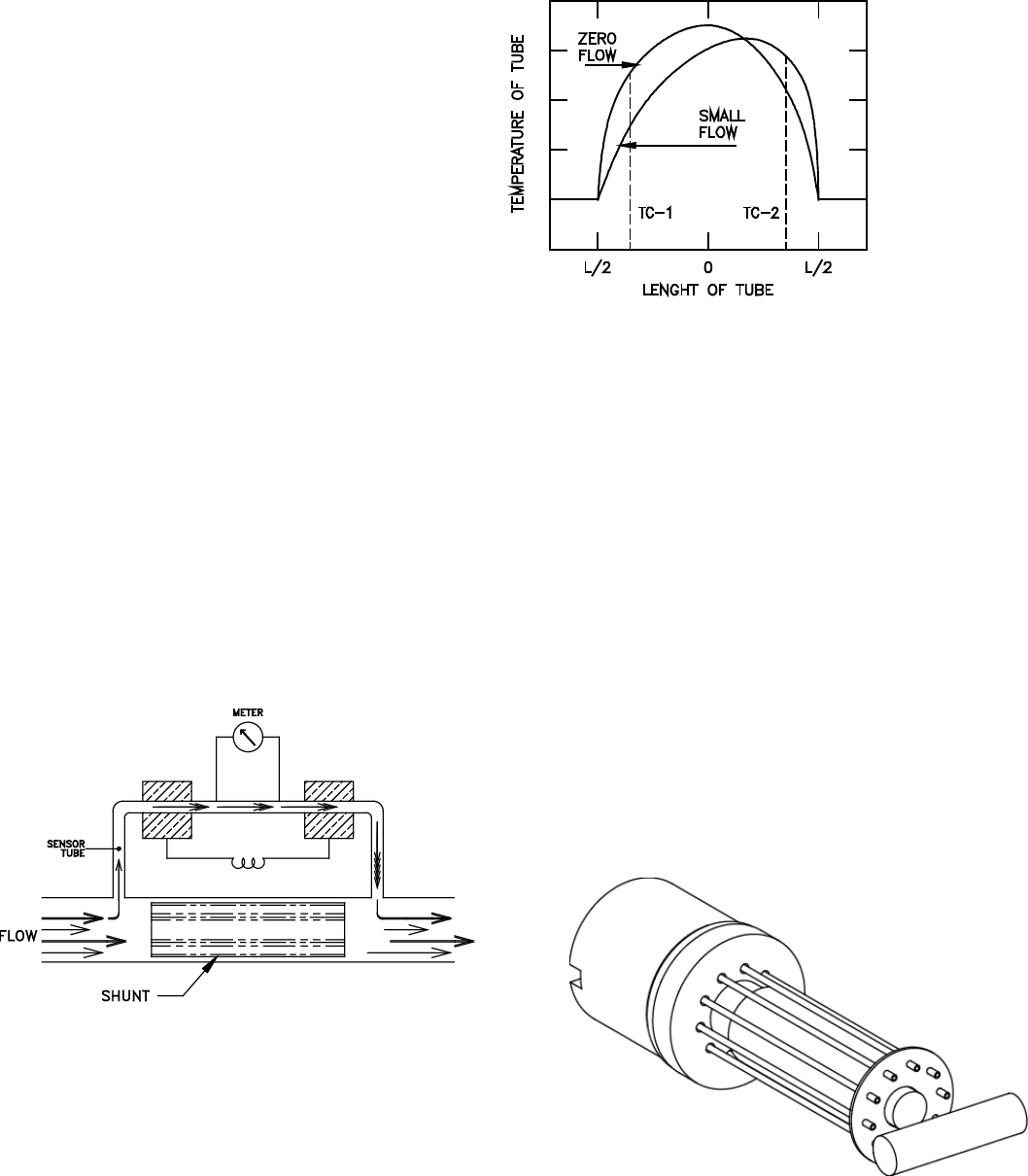
201/203 Series Page 13 of 20
This signal is amplified by the meter circuitry until is 0-5.00 VDC. This 5 volt output is sent back to
the power supply and to the flow meter
circuitry, if applicable. At the power
supply the 5 volt output is sent to the
terminals on the back and to the decoding
circuitry in the display which converts it to
a 3-digit output.
The controller circuitry utilizes the
Command and the Flow voltages as input
signals. The 0-5VDC command signal is
subtracted from the 0-5VDC flow signal
creating an error signal. This signal is
amplified and causes the solenoid valve to
move. The amount and direction of the
movement is dependent upon the value and
the sign of the error signal, and tends to
minimize the error signal.
3.4. Shunt:
Measurement of flow rates higher than the 10 sccm full scale is achieved by dividing the flow with a
fixed ratio shunting arrangement, as is illustrated in Figure 3.3. This is accomplished by placing the
measuring capillary tube parallel with one or more dimensionally similar channels, called a laminar
flow element (LFE). Therefore, the sensor only needs to heat the gas passing through the capillary
tube resulting in low power requirements, while retaining all the mass measuring characteristics.
The HFC-203 uses corrugated and fused shunts similar to the shunts used in the lower flow range
instruments. These high range shunts are factory adjustable from 0-30 slpm to 0-500 slpm (see
Figure 3.4), using specific corrugated shunts that give the desired flow range.
FIG 3.2
FIG 3.4
FIG 3.3



